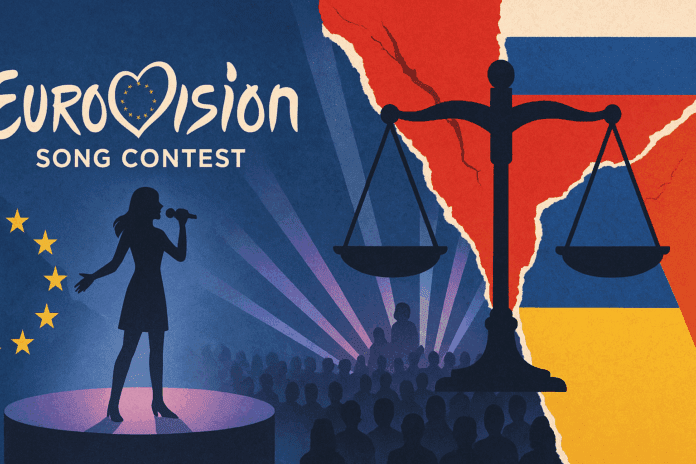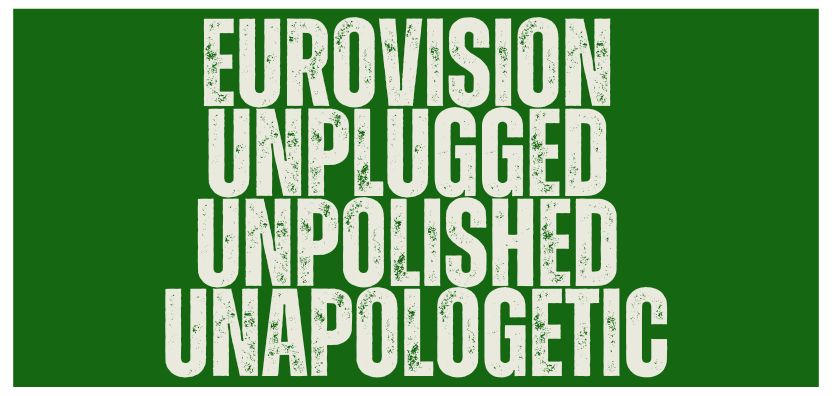
|
Getting your Trinity Audio player ready...
|
The European Broadcasting Union (EBU) has commissioned an independent, “structured and in-depth dialogue” could reshape how countries enter – or are excluded from – the Eurovision Song Contest (ESC). The move follows a candid debate at the 94th EBU General Assembly in London on 3 July, where members acknowledged that “questions around participation have become increasingly sensitive and multifaceted.”
The root-and-branch review comes at a time when the viability of the Contest has come into question, with some suggesting they’re unable to continue watching the show while it insists on maintaining a head-in-the-sand approach to global events. Despite many social-media announced decisions to ‘boycott’ the show, the 2025 event was claimed to be the most watched in many years.
What the new EBU statement says
“To help us navigate the current landscape, a former senior TV executive has been invited to lead a structured dialogue with our Member broadcasters… They will report back with recommendations this autumn.”
Key extracts translated from the original French announcement:
- Broad political pressures: Despite it’s enormous success, the Eurovision Song Contest isn’t above the pressures of global politics.
- Support for KAN: Members “expressed their support for the work of Israeli public broadcaster Kan and its independence, noting the pressure it repeatedly experiences from the Israeli government.”
- Independent facilitator: An ex-TV executive will speak to Directors General “to gather ideas on managing participation and geopolitical tensions.” Recommendations are due before the next Assembly in December 2025.
Why this matters
- Israel debate reaches boiling point
Complaints about Israel’s participation – and the televote that propelled it to second place in May – were formally lodged by at least eight broadcasters, including VRT (Belgium), NRK (Norway) and RTVE (Spain). - Rivals threaten to quit
RTVSLO (Slovenia) and BHRT (Bosnia & Herzegovina) warned they could withdraw unless voting transparency and participation rules are tightened. - New Code of Conduct already incoming
Separate reforms announced last December introduce a compulsory Code of Conduct and Duty of Care Protocol for Basel 2025, mirroring Olympic-style athlete oaths and promising sanctions for political gestures on stage. - Mounting member pressure
Broadcasters claim the EBU’s ad-hoc approach to suspensions (e.g., Belarus 2021, Russia 2022) leaves them exposed to domestic backlash. The promised dialogue aims to create a single rulebook that can withstand future crises.
What changes are on the table?
| Area of review | Current practice | Options under discussion | Likely impact |
|---|---|---|---|
| Participation criteria | Case-by-case Executive Board rulings | Clear thresholds linked to EBU Charter compliance or UN sanctions lists | Greater predictability; fewer last-minute withdrawals |
| Voting transparency | 50/50 jury-televote; detailed split released after final | Independent data audit; earlier publication of jury identities | Rebuild trust after recent jury scandals |
| Political neutrality enforcement | Broad “no political lyrics/speeches” rule | Hard ban on flags/symbols outside national emblems; escalated fines | Supports new Code of Conduct |
| Broadcaster independence | Self-declaration reviewed annually | Formal freedom-of-expression index for member eligibility | Shields contests from state interference (e.g., KAN pressure) |
- July – September 2025: Facilitator consults all 70+ EBU members.
- Autumn 2025: Recommendations delivered; Reference Group evaluates.
- December 2025 General Assembly: Members vote on rule-book amendments.
- May 2026 (Austria): First contest potentially operating under the new framework.
What happens next?
The facilitator’s identity is expected to be confirmed in August. Whether the process results in automatic exclusion criteria or merely tighter guidelines will depend on member consensus – a rarity in the ESC’s 69-year history. What is clear, however, is that the EBU is signalling a proactive shift from crisis management to prevention, aiming to protect the contest’s image before its 70th anniversary in 2026.





